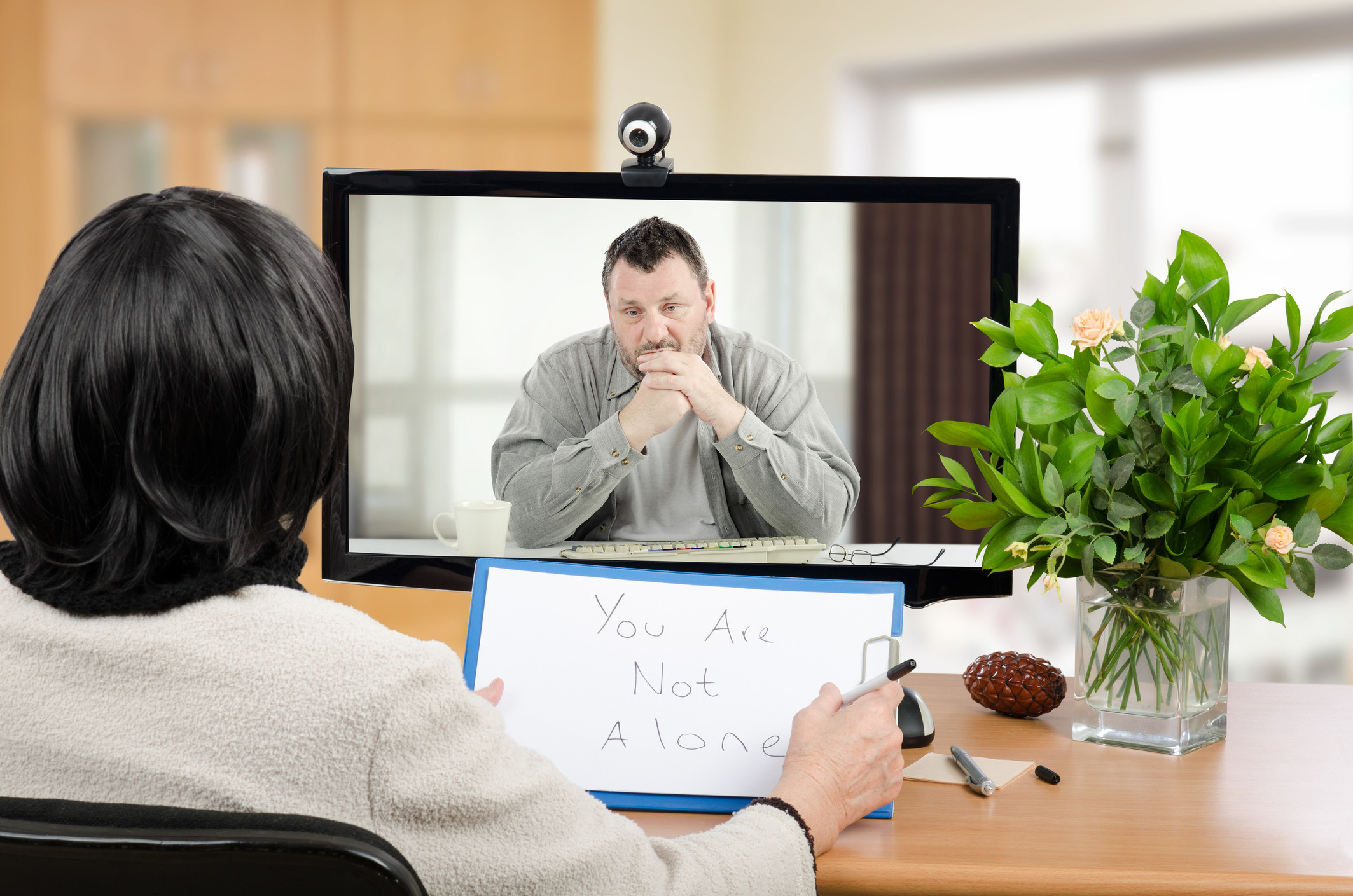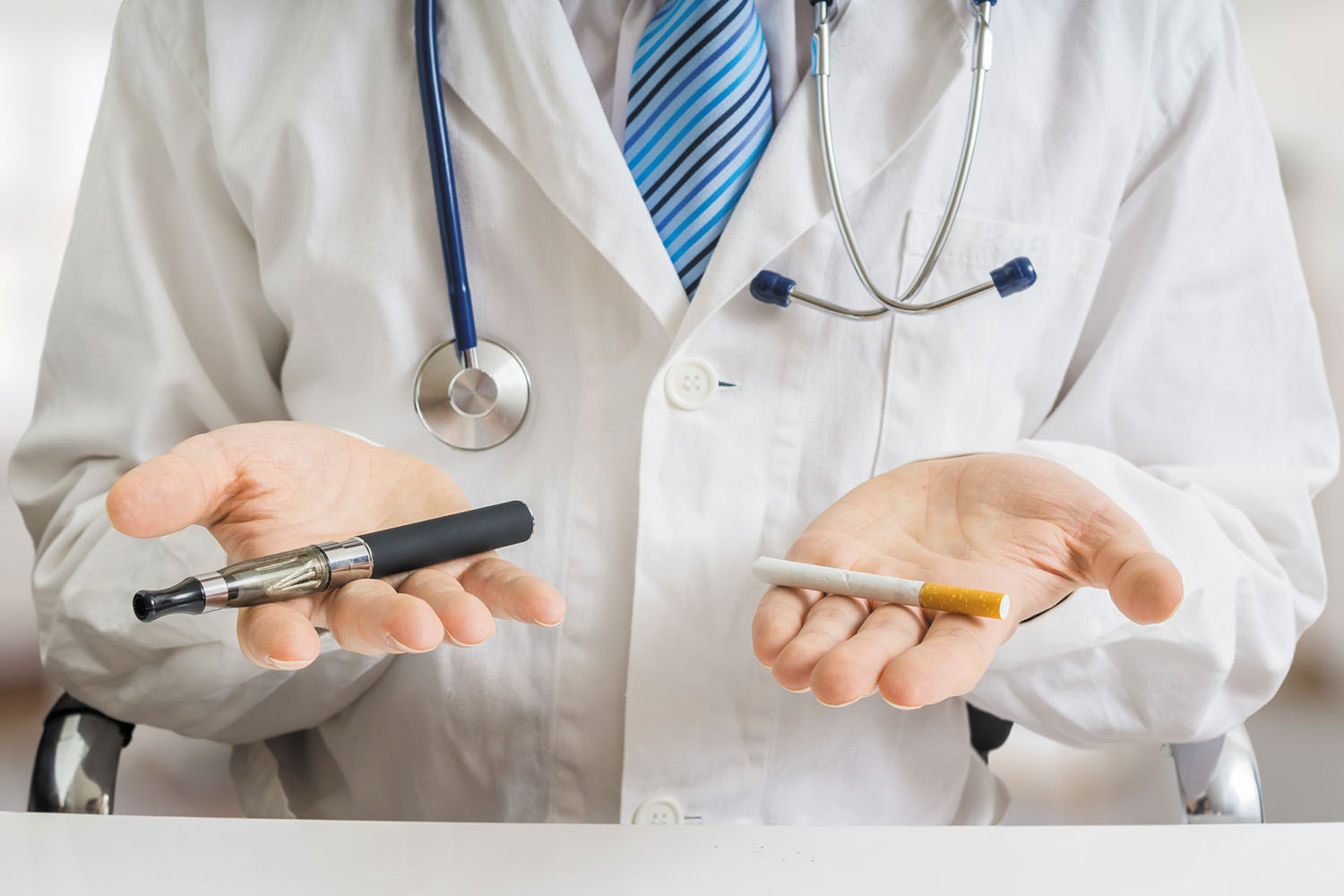
Tips to leverage neuroplasticity to maintain cognitive fitness as you age

Can white noise really help you sleep better?

Celiac disease: Exploring four myths

What is prostatitis and how is it treated?

What is Cushing syndrome?

Exercises to relieve joint pain

Think your child has ADHD? What your pediatrician can do

Foam roller: Could you benefit from this massage tool?

Stepping up activity if winter slowed you down

Common causes of cloudy urine
Addiction Archive
Articles
Looking past the pandemic: Could building on our willingness to change translate to healthier lives?
The COVID-19 pandemic has shown that people are capable of changing their behavior— surprisingly fast—when the stakes are high. Can we apply that resolve to other persistent issues that affect our health and quality of life?
A tale of two epidemics: When COVID-19 and opioid addiction collide
In our inner cities, the COVID-19 pandemic comes on top of another crisis that has plagued our country for years: the opioid epidemic. The combined effects of these two events are immense, and highlight already-existing problems with our society and our health care system.
What new opioid laws mean for pain relief
Dozens of states are cracking down on the amount of opioids doctors can prescribe.
Image: © Darwin Brandis/Getty Images
Overdoses of powerful painkillers called opioids kill more than 115 people per day in the United States. More than 42,000 people died from opioids in 2016, five times more than in 1999. The reason? Since several of these powerful painkillers became available in pill form several decades ago, doctors have been prescribing more than patients need. "It is estimated that a large part of leftover opioids are diverted to the street, either deliberately or through theft," says Dr. Edgar Ross, senior clinician at the Pain Management Center at Harvard-affiliated Brigham and Women's Hospital.
The misuse of opioids is a risk many states are no longer willing to take. The rules limit the amounts that medical professionals can prescribe for temporary (acute) pain from surgery, injury, or illness.
Recovering from addiction during a time of uncertainty and social distancing
Because the very nature of recovery support involves face-to-face interaction, whether in support group meetings or dispensing medication, it is at odds with the need for social distancing during the COVID-19 crisis, creating barriers to receiving support and maintaining recovery.
Can mind-body therapies help reduce reliance on opioids?
News briefs
A large study published online Nov. 4, 2019, by JAMA Internal Medicine offers hope for people who want to reduce their reliance on opioids. The powerful prescription painkillers, such as oxycodone (OxyContin) and hydrocodone (Vicodin), are typically used to treat severe pain after surgery, pain with terminal illness, and chronic pain. But use of these drugs comes with the risk of dependence, addiction, overdose, and death. So researchers set out to determine if mind-body therapies (such as meditation or hypnosis) could help ease pain. Scientists reviewed 60 randomized trials with more than 6,400 people taking opioids for reasons such as surgery, burns, cancer, or chronic pain. Researchers noted moderate to large improvements in pain among people who added meditation, hypnosis, cognitive behavioral therapy (CBT), or therapeutic suggestion to their pain control regimens. Meditation, hypnosis, and CBT were so effective that people were able to slightly reduce the amount of opioids they were taking. Two other therapies — relaxation therapy and guided imagery — did not have a significant impact on pain. The great news: you have nothing to lose by adding one of these mind-body therapies to your regimen, and it may even help.
Image: FatCamera/Getty Images
Are you drinking too much alcohol?
Here's how to tell if you may have a drinking problem.
Alcoholic beverages are a "social lubricant." At holiday and other parties, bouts of excessive drinking can seem like part of the celebration. But here's something to think about as you raise your glass: drinking too much alcohol at a party — or at any time — can be a sign of alcohol use disorder (AUD).
What is AUD?
AUD is the umbrella term for problem drinking that stems from alcohol abuse or alcohol dependence. While both are marked by problems stopping or controlling alcohol use, they're not the same.
Alcohol and fatigue
Sedative effects of drinking can also initiate other physical responses in the body
Image: KatarzynaBialasiewicz/Thinkstock
Many people think that a little nightcap will help them sleep soundly through the night. Although alcohol's sedative effects can make you drowsy, they also have other effects that can interfere with quality sleep.
Several hours after that nightcap, the alcohol raises the body's level of epinephrine, a stress hormone that increases the heart rate and generally stimulates the body, which can result in nighttime awakenings. Indeed, alcohol may account for 10% of cases of persistent insomnia. Alcohol also relaxes throat muscles, and this relaxation can worsen sleep-related breathing problems and contribute to sleep apnea. What's more, alcohol may increase the need to urinate during the night — just another way in which it can disrupt sleep.
E-cigarettes: Hazardous or helpful?
Their efficacy as a tool for quitting regular cigarettes and their long-term safety remain concerning.
Even if you never touch cigarettes, you probably know someone who does (or did) smoke. Nearly half of Americans smoked in the mid-1960s, compared with just 14% today. Still, cigarette smoking is responsible for nearly one in five deaths in the United States, and about one-third of those are due to heart disease.
What about electronic cigarettes (e-cigarettes), the latest smoking trend? These battery-operated devices heat up a liquid, creating a vapor that users inhale and exhale, a practice known as "vaping." Although e-cigarettes were initially targeted to young people, more recent ad campaigns feature middle-aged, long-time smokers who have switched to vaping. Is vaping safer than smoking, especially from a cardiovascular perspective? And can these products help people quit regular cigarettes?
Treating opiate addiction, Part II: Alternatives to maintenance
The is the second part of "Treating opiate addiction". Click here to read Part I: Detoxification and maintenance.
Naltrexone
A different kind of drug treatment for opioid use disorder is the long-acting opiate antagonist naltrexone, usually taken once per day after detoxification. It neutralizes or reverses the effects of opiates, and triggers a withdrawal reaction in anyone who is physically dependent on opiates. A person who takes naltrexone faithfully will never relapse, but most people simply stop using it, or refuse to take it in the first place. A newer slow-release naltrexone injection is now available. However, it is too soon to know if it will have a better success rate than the oral form.
Treating opiate addiction, Part I: Detoxification and maintenance
Dozens of opiates and related drugs (sometimes called opioids) have been extracted from the seeds of the opium poppy or synthesized in laboratories. The poppy seed contains morphine and codeine, among other drugs. Synthetic derivatives include hydrocodone (Vicodin), oxycodone (Percodan, OxyContin), hydromorphone (Dilaudid), and heroin (diacetylmorphine). Some synthetic opiates or opioids with a different chemical structure but similar effects on the body and brain are propoxyphene (Darvon), meperidine (Demerol), and methadone. Physicians use many of these drugs to treat pain.
Opiates suppress pain, reduce anxiety, and at sufficiently high doses produce euphoria. Most can be taken by mouth, smoked, or snorted, although addicts often prefer intravenous injection, which gives the strongest, quickest pleasure. The use of intravenous needles can lead to infectious disease, and an overdose, especially taken intravenously, often causes respiratory arrest and death.

Tips to leverage neuroplasticity to maintain cognitive fitness as you age

Can white noise really help you sleep better?

Celiac disease: Exploring four myths

What is prostatitis and how is it treated?

What is Cushing syndrome?

Exercises to relieve joint pain

Think your child has ADHD? What your pediatrician can do

Foam roller: Could you benefit from this massage tool?

Stepping up activity if winter slowed you down

Common causes of cloudy urine
Free Healthbeat Signup
Get the latest in health news delivered to your inbox!
Sign Up










